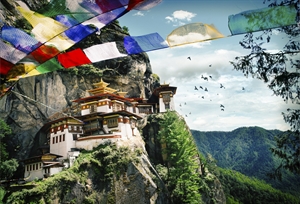Walking may not be the fastest way to cover a distance, but the slower pace of a walking holiday allows you to really experience the weather and the landscape. It can take you to remote communities and give you access to pristine wilderness. And walking can be incredibly relaxing: the very act of putting one foot in front of the other is almost a meditation.
Foot health
How are your boots? If you are new to walking, you’ll want to buy the best pair you can afford. Break them in with a few day hikes before you set out on your expedition. Good socks are very important: a thin pair next to your skin with a thicker pair on top offers good cushioning and protection from blisters.
Hiking poles are helpful for some people, particularly if you have weaker knees, as they add stability and improve posture.
Altitude sickness
Altitude sickness can affect travellers from about 2,400m, although there are no hard and fast rules and no way of predicting who will be affected. Anyone trekking or hiking at altitude should know the symptoms of altitude sickness, which are listed on My Health Alberta. The symptoms will pass if you descend or acclimatize; but if you are vulnerable to altitude sickness you may be at risk from the life-threatening high altitude cerebral oedema (HACE), a swelling of the brain caused by lack of oxygen.
There is medication available to treat altitude sickness, but it is not a substitute for acclimatization or descent. Ask your travel health adviser for details. Altitude may also affect existing conditions – so make sure you mention these during your appointment.
Set your own pace
Every trekker has their own pace and if you try to go too fast, you risk wearing yourself out and you will miss the incredible sights you have travelled to enjoy. Let the faster walkers go ahead: you can catch up with them at the next rest stop. And faster walkers should be patient with those who prefer a slower pace.
Are you covered by insurance?
A wilderness rescue is incredibly expensive, particularly if it involves a helicopter ride. Add any medical bills to that and the total can run into thousands of dollars. Speak with your travel insurer before you leave Canada to make sure that you are fully covered for your expedition.
What vaccines do I need for a trekking holiday?
Your travel health adviser will take a look at your destination and make some recommendations. You may also want to get boosters for tetanus, diphtheria and polio. The vaccine Revaxis combines these three. Tick-borne encephalitis is a particular risk in parts of Europe and Asia if you are walking in woodland or grassland. You may also need to take some tablets to prevent malaria if that is a problem in the area you are visiting.
For a full assessment, make an appointment with Canadian Travel Clinics.

